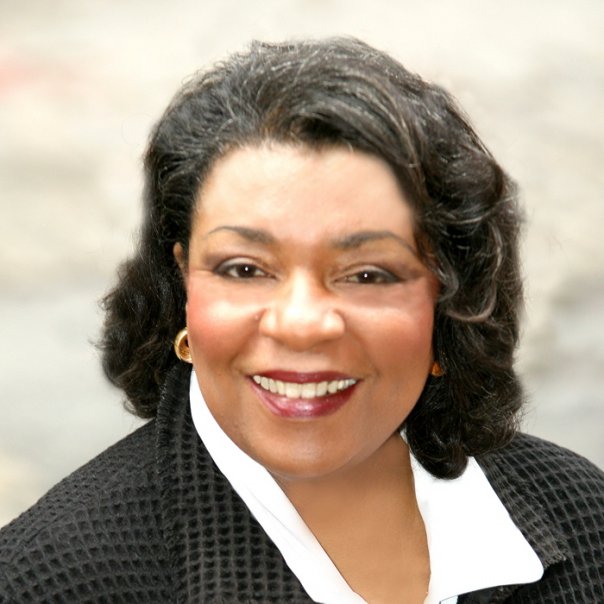Beverly Manley, the former first lady of Jamaica, Jamaica’s former representative to the United Nations Commission on the Status of Women, and a graduate of Landmark Education’s Landmark Forum program, recently interviewed Deb Beroset, a spokesperson and program leader for Landmark Education, on her ‘Today with Beverly Manley’ radio show. Wesley Morris, also a Landmark Forum graduate, was also interviewed as part of the program. A transcript of the program follows below:
Beverly [Host]: What a better way to celebrate a birthday, than looking at ourselves and seeing just what keeps us going, what stops us, and what we can do about it at an individual level. Dr. Wesley Morris, who’s a fairly regular contributor to the program, transformational coach, joins us. Good morning Wesley, how are you?
Wesley: Good morning Beverly, I’m fine, thank you – and you? What a better way to celbrate a birthday, than looking at ourselves and seeing just what keeps us going, what stops us, and what we can do about it at an individual level. Dr. Wesley Morris, who’s a fairly regular contributor to the program, transformational coach, joins us. Good morning Wesley, how are you?
Beverly: Wonderful. And we have Deb Beroset from Landmark Education, and she’s a spokesperson for Landmark and program leader coming to us from the United States. Good morning, Deb.
Deb: Good morning, Beverly.
Beverly: Welcome, and thank you for joining us. Wesley? Question on behavioral change at the individual level. And what I want to do in the short time we have today is talk about your personal experience with change. Any way you want to do it. Use an example, any way you want to do it.
Wesley: Ok, so I’m going to say that the first time I did the Landmark Forum was in 1994. One of the things I saw on it was there was a lady being coached about her relationship with her mother. And if one’s relationship with one’s parents is very, very important. And she was saying that my parents don’t, my mother doesn’t, love me. And each person in the room could see that what she was using as evidence that her mother didn’t love her, for them wouldn’t be evidence that their parents didn’t love them. And I really got that, because I had a little bit of an issue whether or not my mom loved me or not or whether she loved my brother. And I really saw that my mother loved me, and that was a really major change for me in terms of my relationship with my mother, which improved from that moment on. And it wasn’t that we were in a daggers drawn or anything. It’s just that there’s a quality of the relationship that, seeing this person being coached in that way that made a very big difference.
Beverly: So let me get what you’re saying. You’re saying that seeing the person being coached in that way allowed you to see something for yourself in your own life. Deb, share with us a personal experience you have had in terms of transformation of yourself.
Deb: Absolutely, Beverly, thank you. And by the way I’m very moved by what Wesley just shared with us. The wonderful thing about this, Beverly, this education, and I’ll share a personal example. You mentioned a little bit about seeing transformation, and we really do take for granted that things are a particular way, and we are a particular way – and then we try to change ourselves, or we go to work on altering our circumstances and the people around us. When I first participated in The Landmark Forum, I saw that that is essentially all about comparing to something that’s previously existed and, by its very nature, is past-based. Transformation is an act of bringing forth or inventing. It’s actually something created, and it is just inherently expansive. So one of the big things that I got, actually, was the degree to which how I was being in life was stressed and tense and always looking at what was the next thing I needed to be doing. I was a single parent with two young daughters, I was self employed as a writer. And I had a lot of circumstances, as we all do, that for me seemed to point to that ‘This is the best that I can experience in life.’ And what I saw in The Landmark Forum was that that wasn’t necessarily the case – it was simply how I was viewing life – and I saw that it was actually possible for me to be happy and to have peace of mind regardless of my circumstances. And what happened, Beverly, is that I actually became someone who had peace of mind, even when things appeared to be going wrong, I would just see ‘Oh, ok, there’s not a big story about this. This is just simply what’s happening right now. What am I going to do about it?’ And it didn’t rob me of my sense of my fulfillment, satisfaction, and happiness in the moment.
Beverly: Wesley, talk a little bit about, just following on from what Deb just said, talk a little bit about the distinction between what is actually happening – the facts – and the meaning we give to those facts.
Wesley: Ok, um. One of the things that um. Okay, so one of the things that troubled me before I experienced transformation. And I’m going to make transformation not just in terms of what I experienced within Landmark Education.
Beverly: Yes, generally.
Wesley: But what I’ve experienced in other areas as well. So I met someone, a coach, he hadn’t done anything in Landmark. He was actually a new linguistics programming coach. And he had all these really massive claims of what he could do with his coaching. And I attended a two weekend, I think Saturday and Sunday, two weekends with him, and he actually took me through a process. A process called timeline. And what that process did, was that, for about two or three days after I did that process I was calm, like completely quiet. The thought of aggression, and some people may still think I’m aggressive, but the thought of aggression that I had before that just completely disappeared. My wife said ‘What’s the matter with you?’ And I just noticed that I was behaving completely differently from the way I’d been behaving before. So it’s like it did something to an early incident that I had. I put an interpretation on life, and that came when I was probably about 3, that somehow there was something wrong with me. And it almost just disappeared it and my whole relationship with people has completely shifted since that.
Beverly: And has it lasted, Wesley?
Wesley: It’s lasted, it really has lasted.
Beverly: Deb Beroset, what is…can you share with us maybe the tool that you use in Landmark to distinguish between what actually happens, the facts, and the interpretation?
Deb: Sure, we actually call that distinction ‘The Vicious Circle,’ Beverly. Basically it’s where we suggest that it’s the human tendency that we all have – everyone tends to collapse what actually happened with our interpretation of what happened. There’s a story that we tell others or ourselves about what happened. That collapsing happens so fast, that it becomes very difficult – if not nearly impossible – to separate the two, and we think of them as one and the same. So almost immediately, and absolutely over time, the story that we tell ourselves becomes the way it is, the reality that we know, and it limits what’s possible in our lives. Which robs us of a lot of our joy and our effectiveness. So when we are able to separate what happened from our story or interpretation, we discover that much of what we’ve considered already determined, already given, already fixed – my boss is this way, my husband is this way, I am this way – may in fact not be that way. And then situations that could have been very difficult and challenging, they actually become more fluid and open to change. We find ourselves no longer limited by that finite set of options, and we’re able to achieve what we want with a new kind of ease and enjoyment.
Beverly: Can you give us a specific kind of example, Deb, just to make sure our listeners really get it. Because I remember when I got that, it really changed my life.
Deb: Oh yes, absolutely. Well, I mentioned that I had been divorced and had two daughters. Well, there was a father of those two daughters, my former husband. And what had happened was there had been a day when he had been very angry with me during our divorce meetings and had basically said that this whole thing was my fault. And that’s just what he said in the moment. And what I…how I interpreted that is, he would always be angry with me. And so my interactions with him, when the phone rang, and I saw on the caller ID it was him calling, I braced myself to speak to an angry man. And I kept conversations as short as possible. I think this is not an unfamiliar situation?
Beverly: Not at all
Deb: Yes. When I realized, oh, this is just another human being, and he was just upset that day – and this situation has a lot of people upset. And I actually created the possibility of being a powerful co-parent with him. And Beverly, I have to tell you, it’s altered. It’s not like we never had any things that we disagreed on after that, but today, Michael and I – he is my absolute partner in parenting our two teenaged daughters. There’s an ease and a connectedness there that absolutely was not possible until I realized I was responsible for how I had been being with him.
Beverly: We’re going to have to leave it there. Deb Beroset, thank you so much for sharing that thoughtfully. Thank you Wesley, Wesley Morris. Thank you both very much.



3 comments
Very interesting. It sounds so simple yet even as a Christian, I had difficulties with relationships and my emotions. I recently attended the Landmark Forum and am registered for the Advanced Forum and I must say that my interaction with everybody has improved because I have stopped the always already listening syndrome that used to shut other people out.
Thanks for this.
How can I get registered to be apart of the Landmark forum?
Beverly Manley Duncan is a great example of the strength of Jamaican Womanhood. She is a Super Woman. Everyone should read her book.